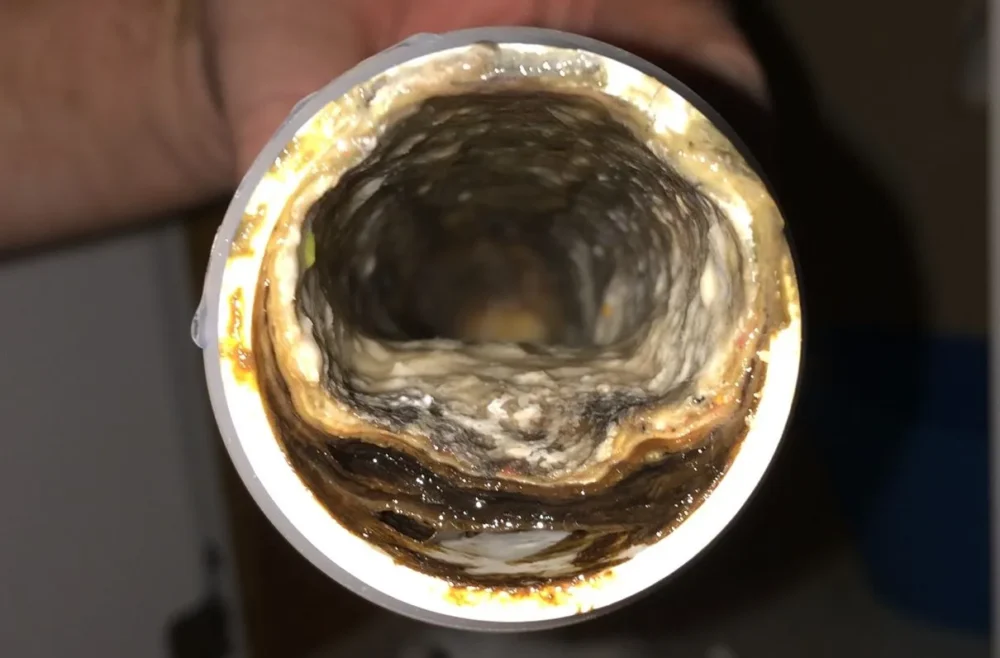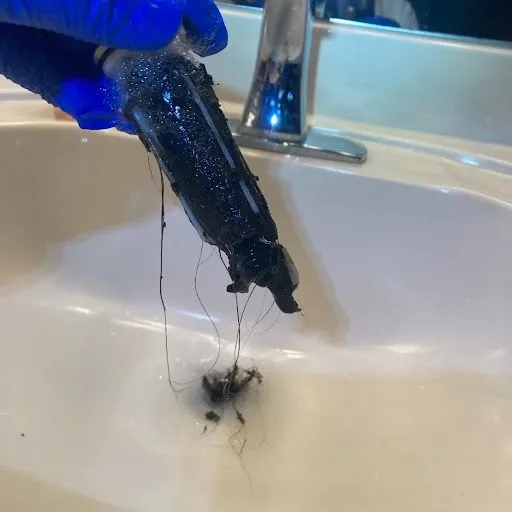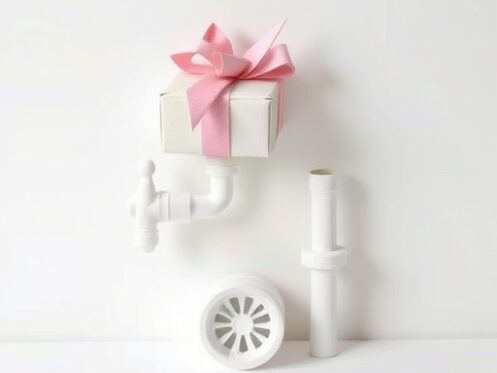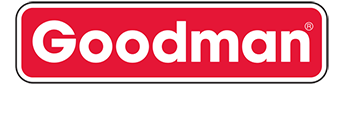We’re coming up on the holiday season—a time of year filled with family gatherings, house guests, and lots of cooking. Don’t let clogs, sewer backups, and costly repairs get in the way of your cherished holiday traditions.
One of the easiest ways to avoid holiday plumbing headaches is to be aware of what goes down your drains, which is why we’ve compiled a list of Drain Don’ts for your kitchen and bathroom.
Drain Don’ts:

Kitchen Drains and Garbage Disposals
a cross-section view of the inside of a kitchen sink drain with grease, oil, and fat build up
It may seem like your kitchen sink and garbage disposal can handle anything, but there are some items your drains aren’t meant to handle. Here are several things you should never put down your drains:
- Grease, Oil, and Fat: These may be liquid when hot, but once they cool, they turn into a gel-like substance that adheres to the walls of your pipes and can cause blockages.
- Coffee Grounds: Coffee grounds can settle and build up in the elbows and bends of your pipes, obstructing the flow through those areas.
- Eggshells: The membranes from eggshells can get wrapped around your garbage disposal’s impellers, which can cause a number of problems with your unit.
- Pasta, Oatmeal, and Other Starchy Foods: These foods expand with water, causing them to get stuck in your pipes.
- Bones and Hard Materials: Turkey (and other animal) bones, fruit pits, and walnut shells are all examples of items that are too hard for most garbage disposals.
Drain Don’ts:
Bathroom Drains

It’s just as important to be mindful of your bathroom drains, as they’ll likely see heavier use during the holidays.
Here are some things that should never go down your sink, toilet, or bathtub drain:
- Hair: This is one of the biggest culprits for bathroom clogs. Using a drain cover can help prevent hair from getting into the pipes.
- Wet Wipes: Even if labeled “flushable,” these items don’t break down like toilet paper and can cause severe blockages.
- Cotton Balls and Swabs: Cotton products do not break apart easily, leading to accumulation and clogs in pipes.
- Feminine Hygiene Products: These items are dense and can expand, creating dams in your pipes.



